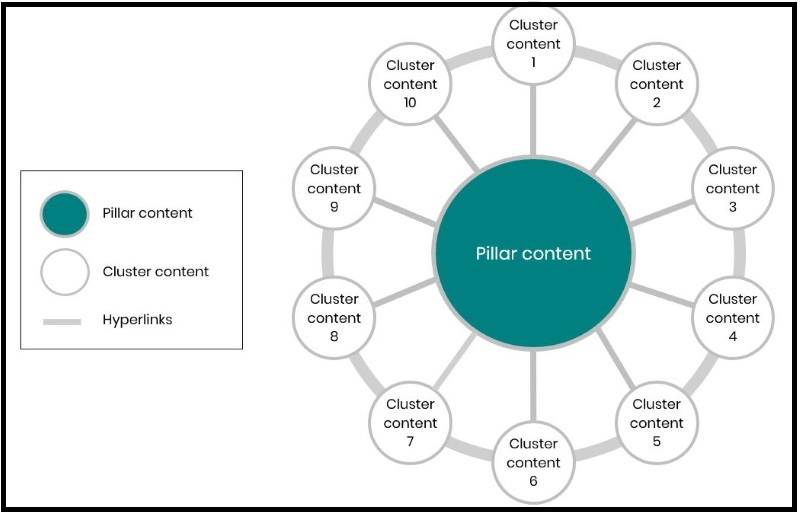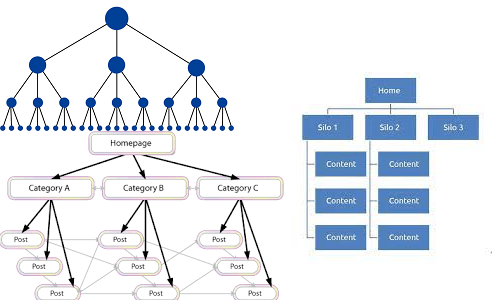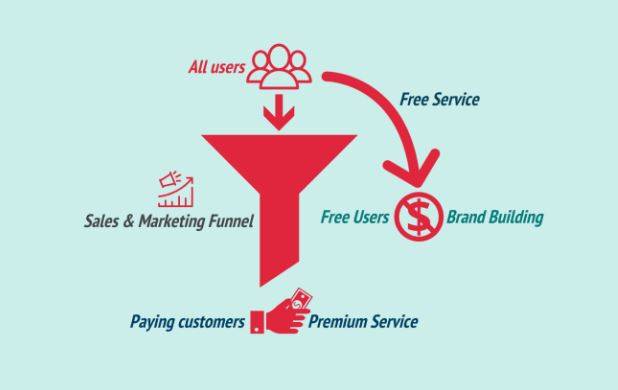The topic clusters strategy can help your website have a better structure and position in search results.
Topic clusters can help businesses create high-potential strategies. This allows them to structure their content and make it easier for people and major search engine bots to find and navigate.
Juanita Moreno, Senior Inbound Professor at HubSpot Academy, spoke about this topic in her presentation “Content strategy based on topic clusters” that she gave as part of the event “Content Marketing. Learn to tell your story” organized by Impulse.
Why use a topic cluster strategy?
The way in which searches are done on the internet has changed a lot in recent years. Before, searches used to be quite simple and only using keywords. What happens today is that, with the changes in the algorithms of Google and other search engines, searches are more complex, conversational, and with more context.
In recent years, Google has introduced algorithms like RankBrain, which uses artificial intelligence and machine learning to look up synonyms and related words, and BERT, a natural language processing model that helps Google better understand languages to deliver more relevant results.
This suggests that Google has put a lot of work into the way it interprets and ranks content. The objective? Better understand people’s search intent to show you the results that best match your search.
All this teaches us that search engines are not our customers, but the person since the search engine is trying more and more to look like a person and to understand the way they search on Google.
This impacts digital marketing.

If you want to create valuable content that helps in conversions, you will have to create a useful and positive experience but, above all, designed both for the person who is searching and for the search engine.
Achieving this will require moving towards a people-oriented methodology, such as the creation of clusters of relevant content or topic clusters. These reorganize the website architecture into small clusters of related content that link to a central pillar page that covers a specific topic in depth.
The topic clusters allow having a simple and organized site architecture that makes it easier for Google and other search engine bots to crawl the website more easily and faster, as well as helping the audience find what they are looking for quickly.
4 steps to build topic clusters strategy
How to start?
Step 1: Choose an overarching topic for which the company is recognized and becomes an authority
At this point, the first thing will be to make a list of general topics that could interest the company and in which you would like to obtain authority or recognition, and then choose just one.
It’s important to note that if you’re going to spend time and resources creating educational content for your audience, it’s critical to make sure they’re connected to or support at least one of your products or services.
Step 2: Contextualize the general topic into specific topics
Once the general theme is chosen, there will be a million options that could be discussed. Different methods can be used to define the specific theme, but there are also tools that can help a lot in this task. These are some:
UberSuggest: allows you to put a general theme and choose the country and language where to position yourself. The tool will show what are the words related to that general topic and the search volume for each of them.
Public Answer: this allows you to do a keyword search and add a language. What the tool does is show clouds of words related to the search.
Google: the easiest to use. Just do a Google search for the general topic and see which are the most positioned pages for that topic. In addition, you can use Google’s autocomplete option, as well as the related questions section. This allows you to benchmark what people are saying, which formats they like the most, etc.
This is how you can begin to make a list of the most interesting and relevant specific topics to explore.
Step 3 – Identify a number of subtopics that support the specific topic
To begin to identify the subtopics, you can use the same exercise with the tools shown in the previous step, but instead of looking for the general topic, you will have to do it with the specific topic.
Also, here you can start to take into account what people are asking about the service or product that the company offers. And in this task, customer service and salespeople are the best allies.
Step 4 – Identify a practical resource that covers the topic comprehensively
Here the idea is to seek a return on investment and make the general topic transactional to have an impact on sales. So the goal will be to offer highly valuable content that people are willing to give up their data for.
These will serve to start the process of nurturing leads, qualifying, and moving as far as possible toward the sale. This is the moment when the content marketing strategy is monetized.
To choose that content offer there are endless possibilities. Here are some examples according to the stage of the buyer’s journey:
Discovery stage:
When they are just beginning to identify that they have a problem but are aware of the problem. They can be ebooks, research, whitepapers, and educational content.
Consideration stage:
The lead wants to delve into the problem and is starting to look for solutions. They can be guides, webcasts, videos, and live interactions.
Decision stage:
This is when people are ready to talk about the product.
They can be price lists, comparisons of different providers, success stories, or demonstrations of the product or service.

Summing up, topic clusters are an excellent alternative to focus the content strategy on people since they reorganize the architecture of the website so that navigation is much easier. If you want to learn more about other ways to optimize your website with content marketing, we invite you to subscribe to the grandly blog .






